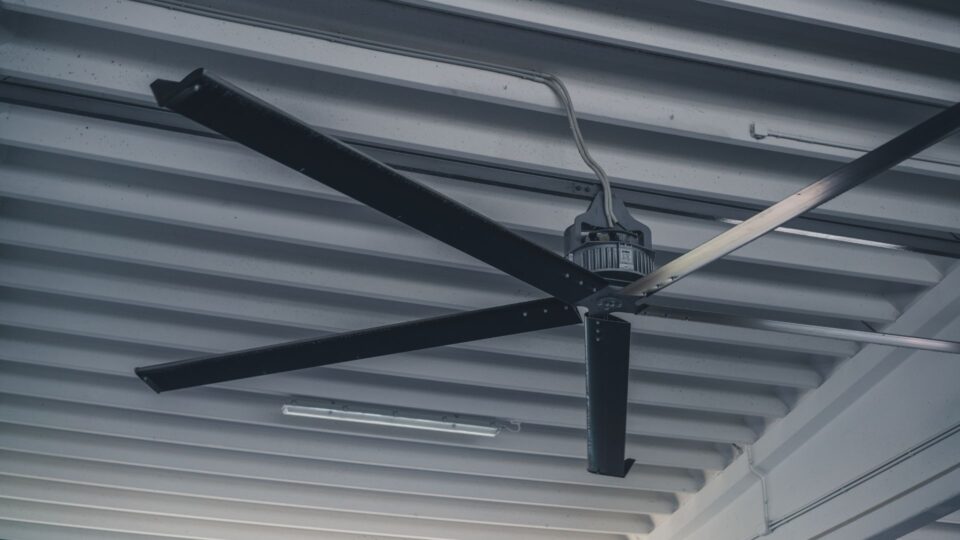Between 2011 and 2020, there were 1451 deaths in Australia caused by occupational lung and respiratory diseases, with a large percentage due to asbestos and other mineral fibers. Ventilation systems are essential in maintaining workplace safety – particularly in industrial environments.
Many workplaces implement ventilation systems over summer to increase airflow and assist with cooling, but many do not consider the benefits for worker health due to the reduction of contaminants and particulate in the air. Winter brings some unique features that can hinder air quality, so it’s vital to make sure your ventilation system is robust, no matter the season.
Benefits of using industrial ventilation systems in winter
Condensation
Ventilation plays an essential role in mitigating condensation in industrial environments. When the weather is cooler, this can cause air pockets of cold air to form, leading to the condensation of humidity in the air.
This condensation can put critical pieces of equipment at risk and shorten their lifespan. Condensation can lead to mould growth and corrosion, which is why ventilation systems are so essential during winter.
Ventilation systems help to eliminate cold air pockets by providing a steady airflow. This helps to mitigate condensation and condensation-related issues caused by colder weather.
Airborne germs
Ventilation is a defence against airborne germs in industrial environments. Airborne germs can cause the following issues for your industrial company:
- Contaminating products is especially detrimental in pharmaceutical, nutraceutical, and food processing environments.
- Causing illness in employees and thus affecting productivity.
Air ventilation technologies provide air filters that help to reduce airborne germs in your industrial facility. They introduce fresh air from outside into the environment and dilute the concentration of airborne germs.
Indoor air pollutants
Ventilation systems are essential for worker safety in industrial environments with indoor air pollutants. Many processes within industrial environments promote the emission of hazardous gases and particles, which can lead to lung health hazards. A ventilation system mitigates this hazard by introducing clean air into the environment and using HEPA filtration systems to capture pollutants in the air. Air scrubbers and electrostatic precipitators also attract and capture organic compounds and hazardous gases using chemical processes.
Humidity
Humidity contributes to condensation during winter, leading to equipment degradation, corrosion, and damage. Humidity also presents the following disadvantages in your industrial work environment:
- Promoting mould – mould, mildew, and fungi can grow in humid environments, leading to health risks for employees and potential structural damage to your property.
- Affecting performance – humidity interferes with the function of your equipment in a manufacturing environment, which can lead to increased maintenance requirements and poor productivity.
Ventilation systems help reduce the humidity concentration in an industrial environment by introducing fresh air.
Temperature regulation
In the winter months, prioritising heating systems to protect worker safety and ensure productivity is essential. Cold stress is an occupational hazard, and it can lead to decreased performance and job satisfaction.
Heating systems can be less efficient without proper ventilation. Heat rises to the top of your industrial facility and does not stay at ground level to keep your workers at a comfortable temperature. Therefore, more heat is needed to fill the space.
With ventilation, however, you can ensure air circulation, allowing even temperature distribution and pushing warm air throughout the facility. This will provide more heat in your building without increased heating requirements – saving you energy.
Which are the best ventilation systems for industrial spaces?
When considering how to ventilate your industrial space, it’s essential to understand your ventilation requirements. To evaluate your needs, you must consider the following factors:
- The size of your facility.
- The amount of hazardous gases and airborne germs produced by your industrial processes.
- Your heating and cooling requirements.
Speaking to a ventilation expert can help you to access recommendations based on your specifications. Here are some of the most suitable ventilation solutions for industrial environments:
- Giant fans – giant fans provide air circulation for large industrial spaces. They offer high-volume airflow and provide the durability required for long-lasting use.
- Air circulators – air circulators provide powerful airflow with adjustable tilt and oscillation. They also offer the durability required for long-lasting use.

Choose Fanquip for industrial air ventilation systems
Ventilation is not just helpful in providing cool air in summer. It performs processes vital to keeping workers safe in industrial environments and protecting your equipment. It also helps you to get the most out of your heating usage by ensuring even heat distribution.
At Fanquip, we help you to assess your ventilation requirements and recommend the most effective solutions. By contacting our team today, you can get support with your ventilation planning.
